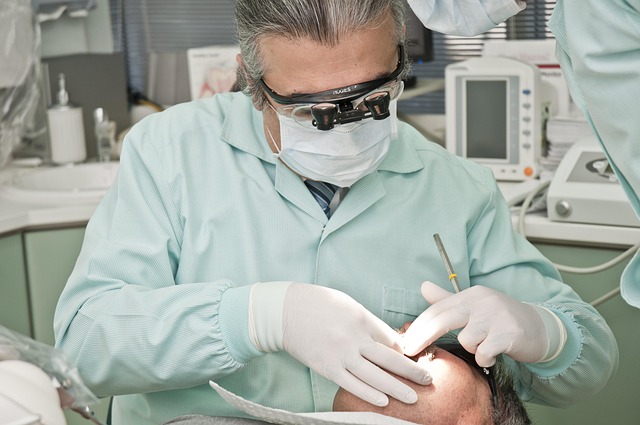In Eugene, Oregon, tooth extraction involves removing a tooth from its socket under local anesthesia for severe decay, gum disease, impacted wisdom teeth, or orthodontic prep. Pre-op care includes discussion with surgeons and gathering info on procedure & recovery. Post-op, rest, ice, avoid strenuous activities, and maintain gentle oral hygiene. Timely follow-ups are crucial. Seek expert help for persistent pain, swelling, pus, fever, or alignment issues indicating potential complications.
“Experience top-tier oral surgery care in Eugene, Oregon. This comprehensive guide delves into the intricacies of tooth extraction procedures, offering insights for those seeking expert dental support. From preparing for your appointment to navigating post-op recovery, we equip you with vital knowledge. Learn about best practices and when to seek professional help for optimal results. Optimize your oral health journey with our expert tips on tooth extraction in Eugene.”
- Understanding Tooth Extraction Procedures in Eugene
- Preparing for Your Oral Surgery Appointment
- Post-Op Care and Recovery Tips
- When to Seek Expert Dental Support
Understanding Tooth Extraction Procedures in Eugene

In Eugene, Oregon, understanding tooth extraction procedures is crucial for anyone considering oral surgery care. The process involves the removal of a tooth from its socket in the jawbone. It’s typically performed under local anesthesia to minimize discomfort. There are several reasons why a dentist or oral surgeon might recommend tooth extraction, including severe tooth decay, gum disease, impacted wisdom teeth, or to prepare for orthodontic treatment.
During an extraction, the dentist makes a small incision in the gums and carefully removes the tooth. In some cases, especially with wisdom teeth, the tooth may be partially removed or left beneath the surface. After the procedure, patients can expect some swelling and discomfort, which is usually manageable with over-the-counter pain relievers. Proper aftercare, including following the dentist’s instructions for cleaning and resting, is essential for a smooth recovery.
Preparing for Your Oral Surgery Appointment

Preparing for your oral surgery appointment, such as a tooth extraction in Eugene Oregon, involves several steps to ensure a smooth and successful procedure. First, consult with your surgeon to discuss any concerns or questions you may have. They will provide detailed instructions on what to do before the appointment, including recommendations like avoiding certain medications or foods that could interfere with bleeding or healing. It’s crucial to follow these guidelines rigorously.
Additionally, gather essential information about the procedure. Understand the scope of work, expected downtime, and aftercare requirements. Prepare your home by making it easy to navigate post-surgery—clear a path for crutches or wheelchairs if necessary. Ensure you have someone available to assist you upon returning home from your oral surgery appointment, especially if the extraction is complex or involves significant bleeding.
Post-Op Care and Recovery Tips

After a tooth extraction, it’s crucial to take care to ensure proper healing. Begin by resting for 24 hours after the procedure, applying an ice pack to reduce swelling. Avoid strenuous activities and heavy foods for the first few days; instead, stick to soft or cool foods like yogurt, mashed potatoes, and soups.
Proper oral hygiene is also essential during recovery. Gently clean your mouth with a salt water solution several times a day to keep the area clean and promote healing. Be careful not to disturb the blood clot that forms in the socket; avoid rinsing vigorously or spitting forcefully. Remember, timely follow-ups with your oral surgeon are vital to monitor healing progress and address any concerns promptly, especially regarding tooth extraction sites.
When to Seek Expert Dental Support

Knowing when to seek expert dental support, specifically for oral surgery like tooth extraction, is crucial for maintaining optimal oral health. If you are experiencing persistent pain or discomfort in a tooth that cannot be alleviated by over-the-counter measures, it’s time to consult an oral surgeon. Swelling, severe tenderness, and signs of infection like puss or fever are strong indicators that require immediate attention. Delays can lead to more complex procedures and prolonged recovery times.
Additionally, if a tooth is severely damaged or impacted, causing alignment issues with surrounding teeth, an oral surgeon should be involved. They possess the specialized skills and tools for safe and effective tooth extraction, ensuring minimal discomfort and optimal healing. Don’t ignore persistent oral issues—timely intervention can prevent complications and preserve your smile.






